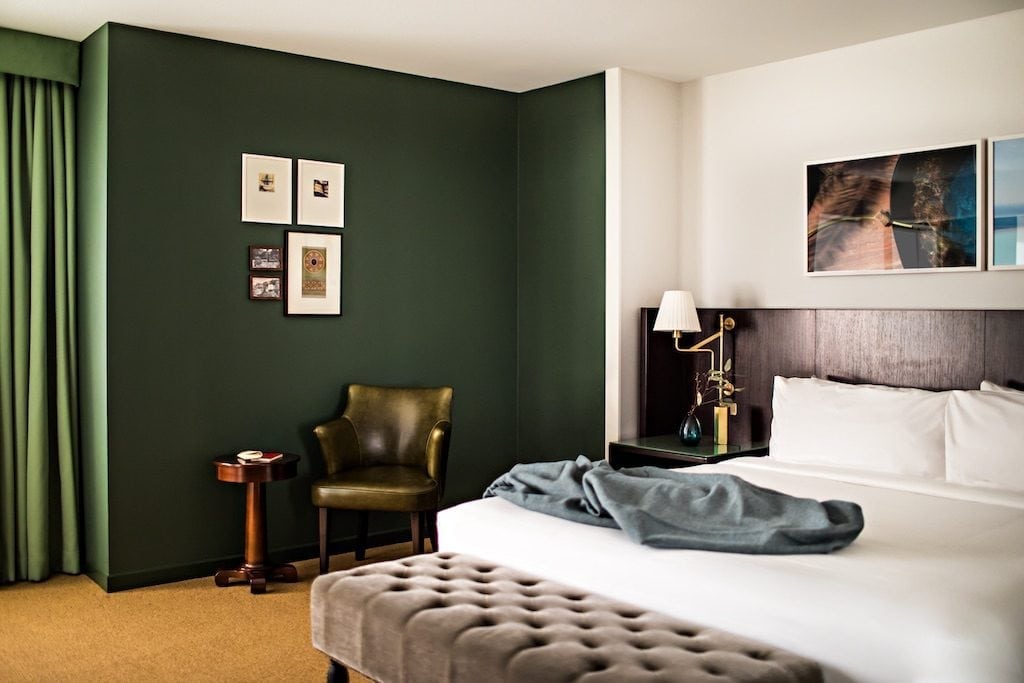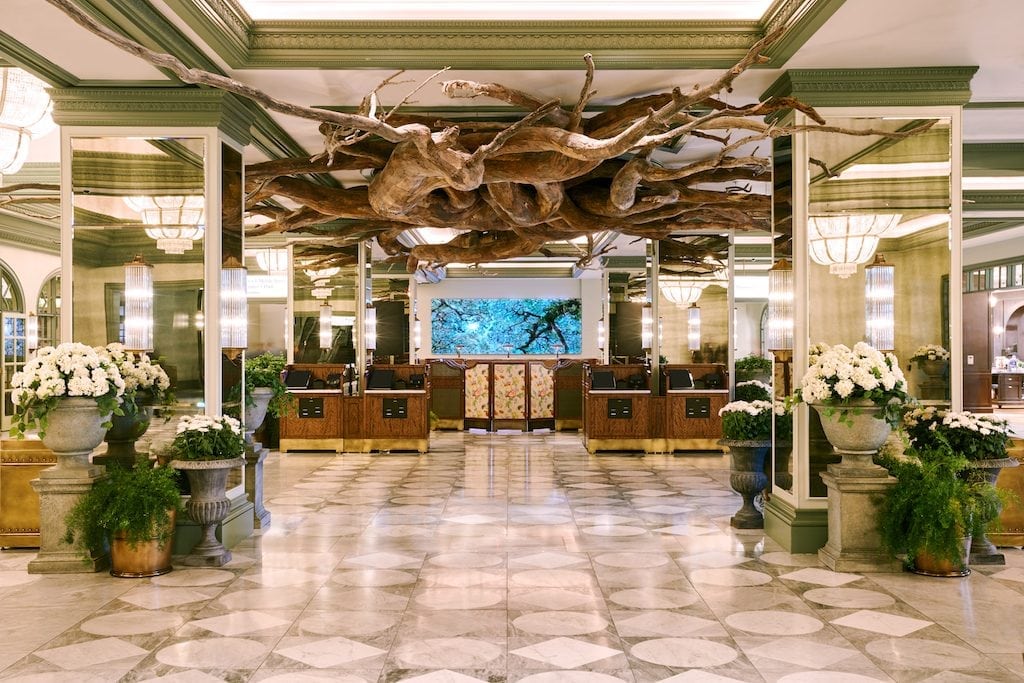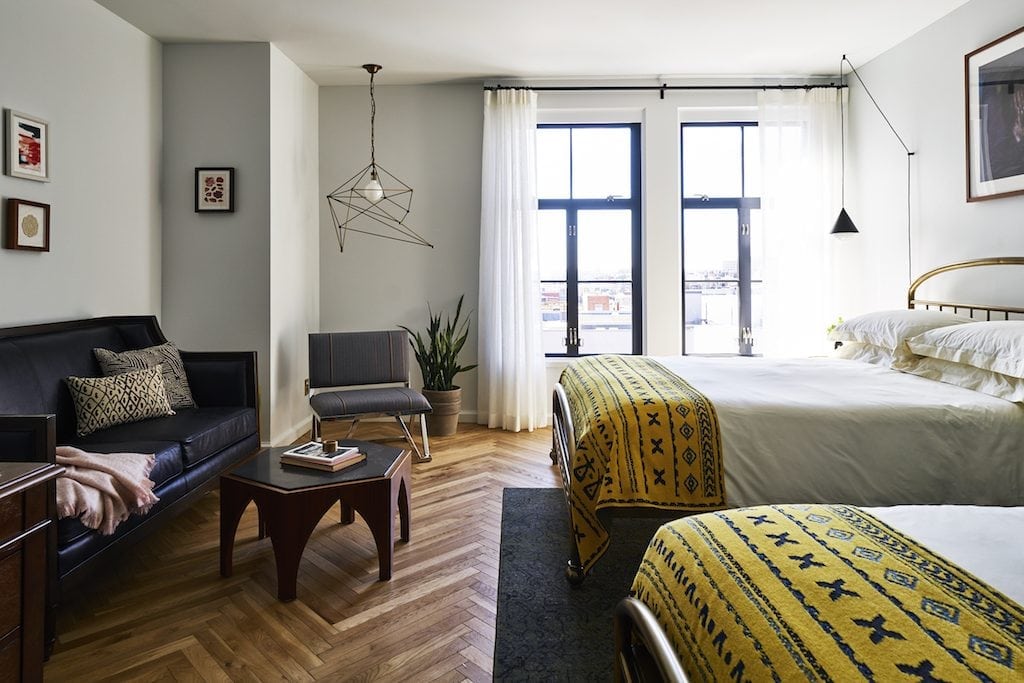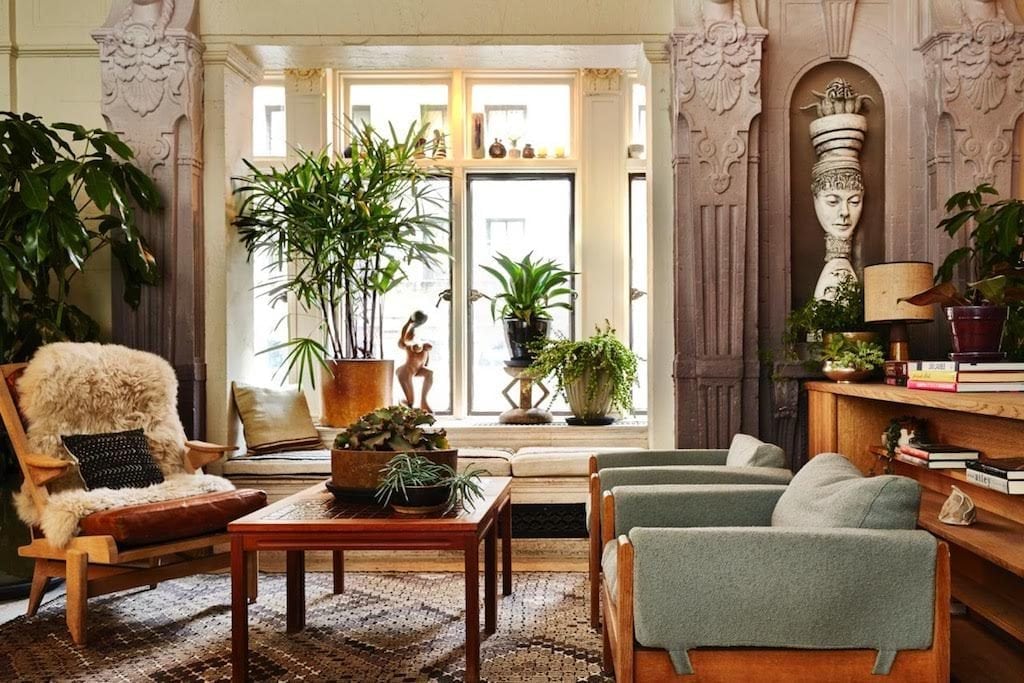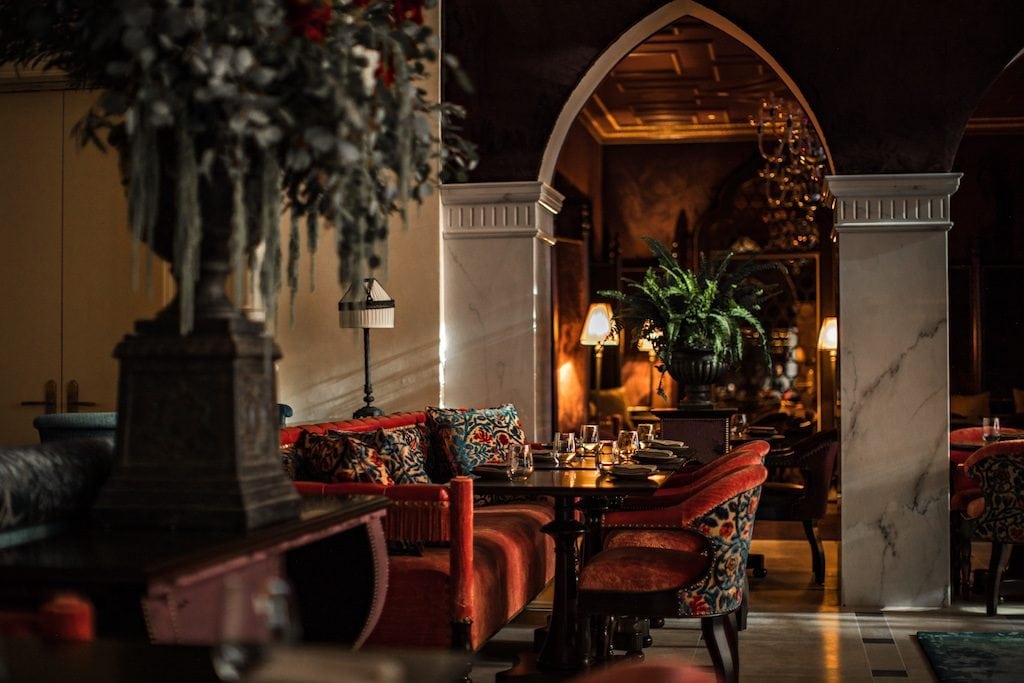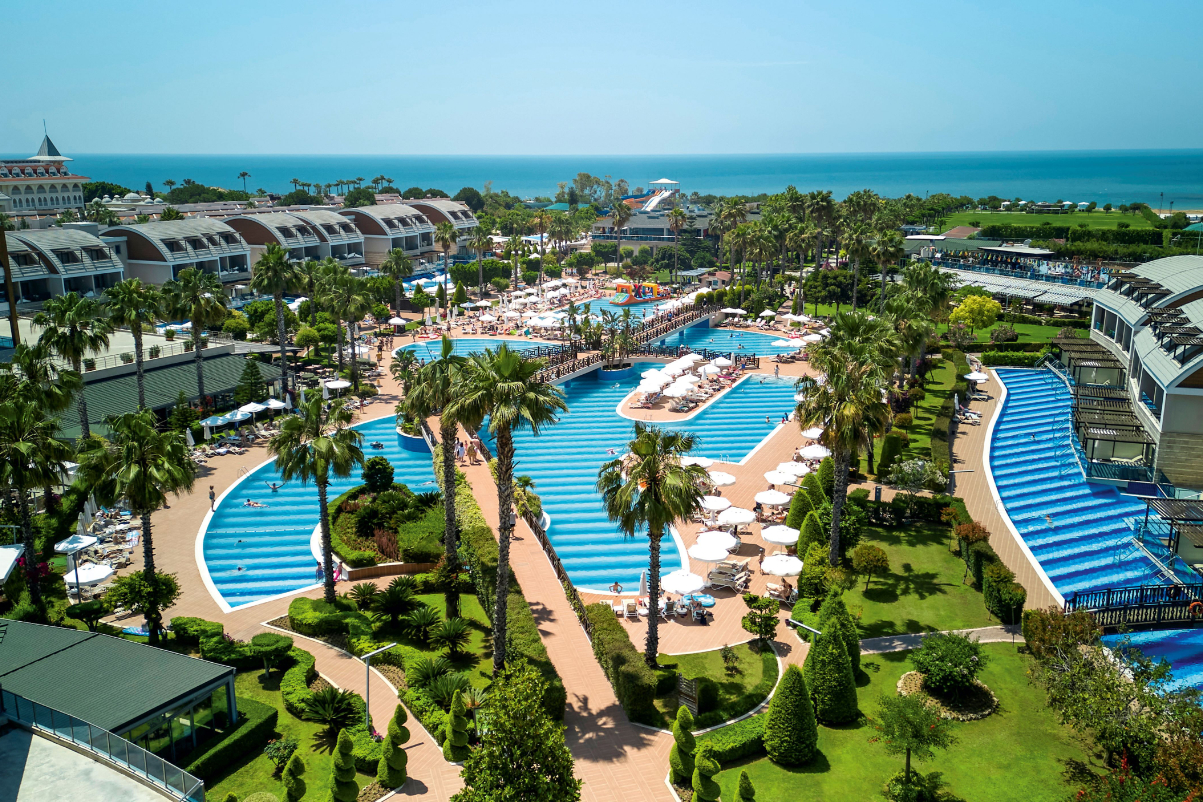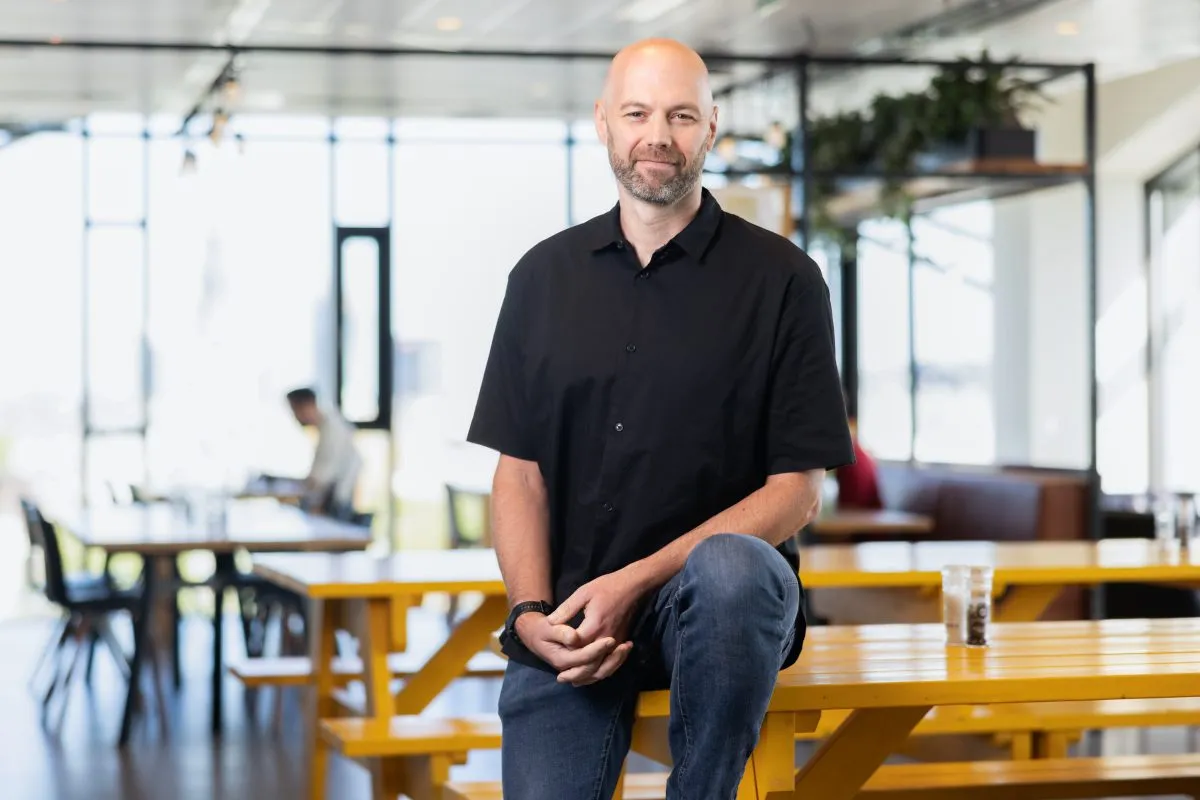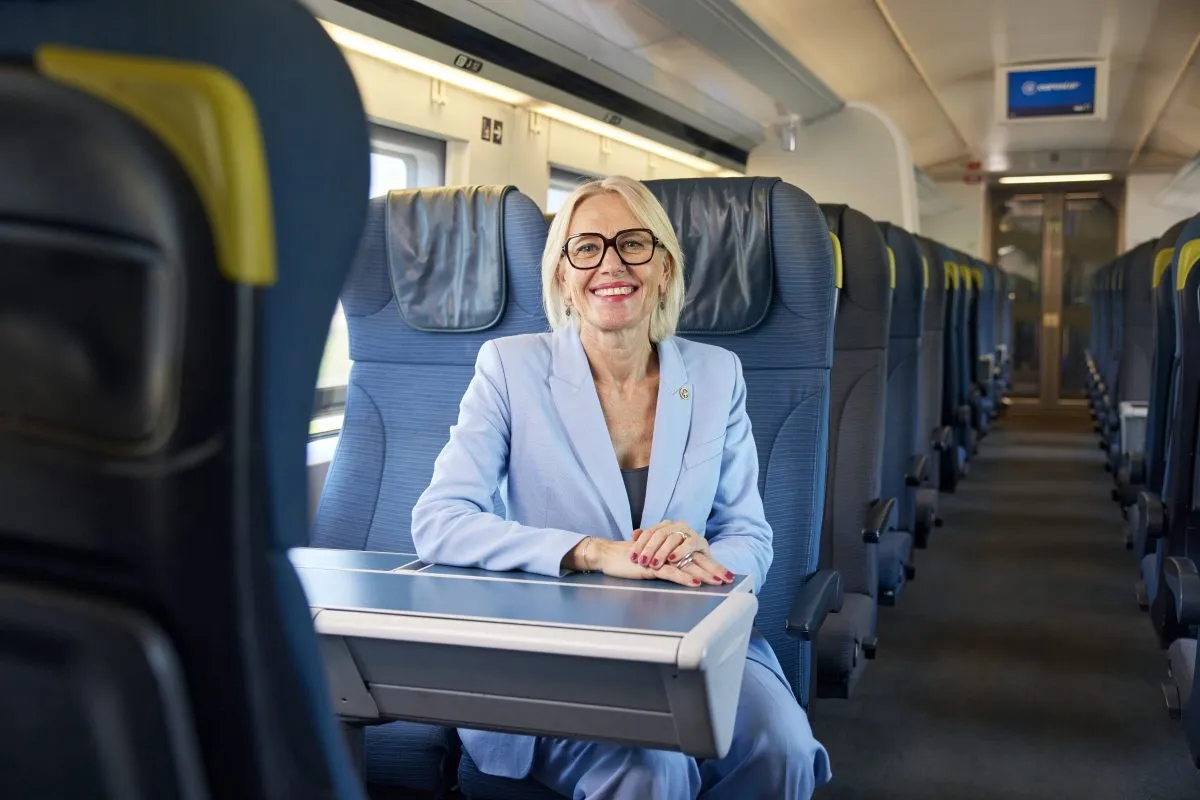CEO Interview: The Future of Boutique Hotels Is to Go Big
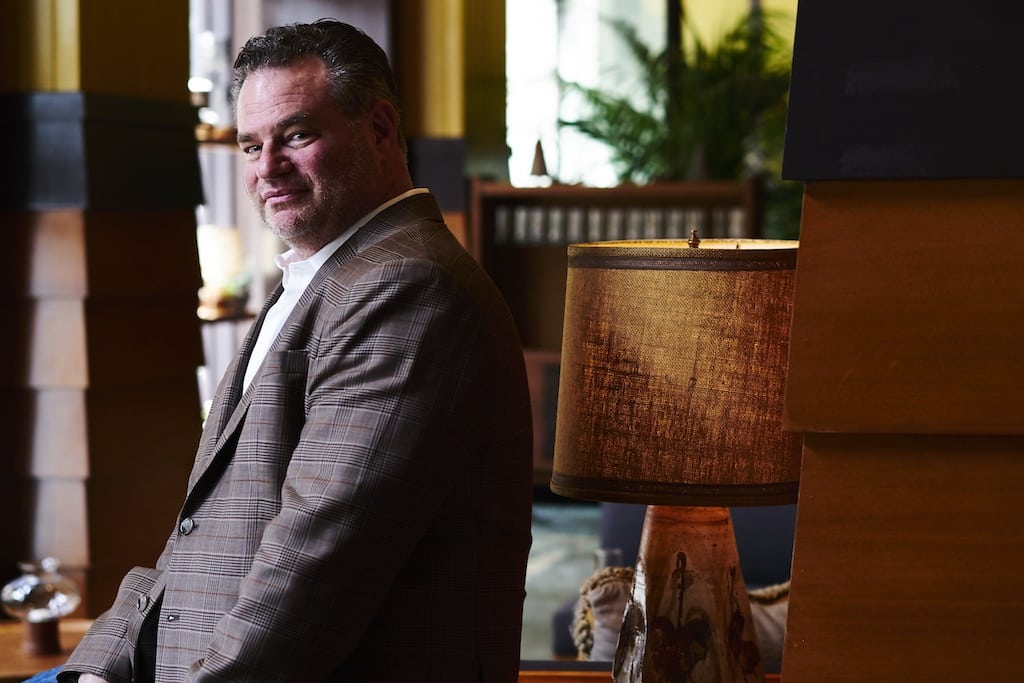
Skift Take
Sitting in one of the bar spaces at the newly opened Freehand New York, Andrew Zobler, the founder and CEO of the Sydell Group, asks, "Do I look tired?"
I'd just asked Zobler how he felt about opening three new hotels in just four weeks, and truth be told, he had reason to be tired.
"This is really not recommended," Zobler said of the timing of the hotel openings, which included the LINE DC, followed by the Freehand New York, and the NoMad Los Angeles, all of which opened in January. "It wasn't really intended that way. No one would sort of plan to open three hotels in a four-week period, but actually, now that we're over the hump, it feels really good."
And now that those openings have been completed, Zobler is turning his attention toward his next big project for 2018: a 2,700-room joint venture with MGM Resorts in Las Vegas, called Park MGM, which also includes a 292-room NoMad hotel as a "resort within a resort." The NoMad Las Vegas is scheduled to open later this year, while Park MGM is slated to open in the spring.
For this next major endeavor, Zobler is seeing if and how he can translate what he's done in the boutique space — ushering in a neighborhood renaissance by transforming old buildings into lifestyle hotels and restaurants — albeit on a much grander scale. Zobler himself has extensive boutique and lifestyle hotel experience, having worked previously with hoteliers such as Barry Sternlicht (W Hotels), Andre Balazs (The Standard), and the late Alex Calderwood (Ace Hotels).
For the Park MGM, Zobler and his team were commissioned to transform the former Monte Carlo resort, which sits in the heart of the Las Vegas Strip, and is part of a $550 million investment. But although the stakes are high and the scale monumental, Zobler is grateful for MGM giving him and his team creative license.
In fact, Sydell Group was approached by MGM Resorts CEO Jim Murren, who loved staying at the NoMad in New York City. Murren approached Zobler and his business partner, Ron Burkle, about bringing the NoMad to Las Vegas, and the Park MGM and NoMad Las Vegas were born.
"All of our properties are different and idiosyncratic, but I think that the thing that kind of brings them all together, more than anything, is kind of this residential spirit, this feeling that they were not mass produced. The personification of personality," he said. "I think we're bringing all those things out, in the way we relate to guests at an individual level, and I think that's something really new for Vegas."
Zobler said lifestyle hotels have evolved from being about nighttime and the bar to "what goes on all day and being a place to hang out and serve as a living room for a neighborhood."
And that's what he wants to bring to Las Vegas, a town made famous for its ability to make nightlife extend into all hours of the day.
"I think bringing that to Vegas is really important, and a big assignment," he said. And that, he believes, is where the future of the boutique or lifestyle hotel is headed: to break free of the constraints of size.
Is it possible to scale that boutique or lifestyle experience, though? Zobler is betting it will. "I don't think that in a 3,000-room hotel you can create the intimacy you can create in a 75-room boutique, but I do think we can significantly, sort of game changingly better than what has been done before."
To do that involves "looking at every different aspect of the guest experience" from the room design and programming to the public spaces, including making those spaces more intimate. "We've tried to break down the spaces so they're not these sort of giant spaces," he noted, saying that the Primrose restaurant at Park MGM is a perfect example of a large, yet intimate space. "It's got a series of rooms, like a country house, and it's relatively large, but it doesn't feel that way when you're in it."
Sydell Group is also paying close attention to MGM Resorts' operations in Las Vegas. "We're a small company and they have all kinds of expertise that we don't have," Zobler said. "Clearly, they understand how to operate in Vegas and they know how to operate a scale." He said that Sydell and MGM have "worked really, really well together and, in fact, we're looking at doing other projects with them."
Zobler and Murren may have started a trend, too, for bringing more lifestyle-driven hotel product into the Las Vegas market. Marriott International announced recently it would transform the long-abandoned Fontainebleu hotel project into The Drew Las Vegas, a 4,000-room casino resort that is scheduled to open in 2020, and will feature the JW Marriott brand, as well as EDITION, a brand created for Marriott by boutique hotel pioneer Ian Schrager.
On Growing Sydell Group
As the company embarks on a number of projects — in addition to the Park MGM the Sydell Group is also opening a LINE hotel in Austin this year — we wondered: How big is big enough?
Zobler joked that, "15 years from now, I see myself driving a Cadillac in Florida," but in all seriousness, he doesn't see his company doing 10 or 20 hotels a year.
To date, the company has nine hotels open in cities such as Miami, New York, Washington, D.C., Chicago, Los Angeles, and London, and three projects are set to open later this year.
"We probably could if we wanted to, but that's not the goal," he said. "The goal is really to maintain quality and to continue to do it in a way that would be sustainable."
In markets where he has existing hotels, Zobler would eventually like to have all three of Sydell's main brands — Freehand, LINE, and NoMad — represented, as he does now in Los Angeles.
"I don't really think that we'll have hundreds of hotels," Zobler continued. "I think it's more about maybe some larger ones, but it's more about quality than it is about that kind of quantity. Maybe someday somebody will buy the company and they'll take it to the next stage. I love that kind of development, but I don't see us generating that kind of volume."
When asked if he had plans to add more brands, he said that chances are slim for doing more brands. "We kind of have our brands and that doesn't mean that if we see a project that we think is really incredible that we won't be opportunistic," Zobler said. "Is it conceivable that we'd create a hotel that was not one of our brands? Yes," he said, citing London's The Ned as an example.
For that project, Sydell Group teamed up with Soho House to open the 250-room hotel, which includes members-only club access, and opened in April.
Does he think there are too many hotel brands out there, period?
"People think they want to be in the hotel business, and people think they want to create brands, but the truth is that there's only so many brands that are going to be successful and that are going to really resonate with people," Zobler said. "It takes a long period of time and a lot of hard work to get hotel companies to be profitable and to be really good. Ourselves, in my opinion, we're just getting there."
On Guest Experience
Because Sydell Group has invested in the real estate for the majority of its hotels, Zobler said "that's what's allowed us to create these unique brands. I think it's very important to establish the vision of these brands."
That strategy may change in the future. Zobler said, "I think we have more flexibility as the brands start to add more definition. I think we have more flexibility on working with other owners."
What interests Zobler most these days is looking at technology, and how it can help his company better understand guests and what they like, or don't like. But he also wants to be careful with exactly which technologies in which he chooses to invest.
"With design, we really want to lead," he said. "With technology, we probably almost always want to be one small step behind. Because I find that very often with technology, when they first create it, it doesn't work well. So we watch carefully what other people are doing, but we don't necessarily want to be the first ones to try everything out."
How Sydell Group refines the guest experience is also being influenced by the company's work with MGM Resorts. "With MGM, we watch — and they are so much more sophisticated than we could ever be on every issue. Right? Because they have 42,000 rooms in one market and they have an incredible amount of information, so we are definitely learning, and looking at all the things they do, and trying to figure out what we can do, too."
Another important aspect of the guest experience, Zobler noted, are the hotels' dining venues, and his hotels have garnered reputations for attracting some of the world's best chefs. Michelin-starred Daniel Humm of Eleven Madison Park fame, along with restaurateur partner Will Guidara, worked with Sydell Group on the dining venues for NoMad. And at the LINE LA, you'll find food from chef Roy Choi, the man who started a food truck revolution with his take on Korean-Mexican fare. Choi will also be opening an as-yet-unnamed restaurant inside the Park MGM later this year.
"Clearly, having sort of a compelling restaurant or bar that sort of feels very much integrated into the property is really, really important," Zobler said. "It's not so much about finding someone who's great, but it's about finding someone who is great for the property and someone who understands the culture. We also tend to like to work with people who are really, very personally involved."
As for the future of the hotels, and whether the full-service hotel is dead or on life support, Zobler emphatically believes hotels have a vital future.
"The more you have the culmination of things like Airbnb, the more it's about a level of service, a differentiation, that drives people to want to come stay with you," he said. "Checking into somebody's apartment is not the same as coming here, with all of the personality and all of the people who make it special."
